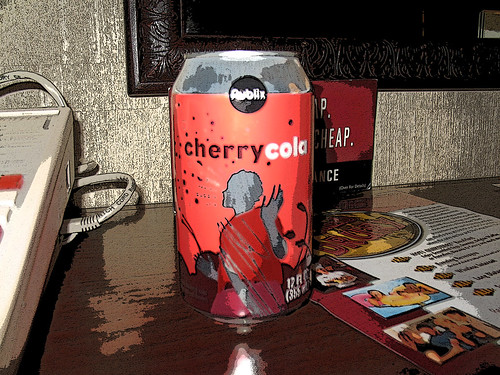+1 for Dublin Dr. Pepper...
-1 for everyone wondering "What's a Dublin?"
Not your fault, tho.

-1 for everyone wondering "What's a Dublin?"
Not your fault, tho.



The Dublin DP is good, but nothing quenches my thirst like...
Topo Chico mineral water.


I never have soda but I am a sucker for mexican coke.
Its made with raw sugar cane not high fructose corn syrup.
Anyone else ever have mexican coke?

Oh, yeah... I loves me some Mexican formula Coke.
And, as an aside, it makes for a much better gin and coke than with HFCS.
I dont know about gin and coke, I like captain morgan private sock and mexican coke ever try that?
+1 for Dublin Dr. Pepper...
-1 for everyone wondering "What's a Dublin?"
Not your fault, tho.

with passover coming up, you should check the kosher for passover coke from any kosher foods store close to you, they cant use HFCS for it, so its real cane sugar,